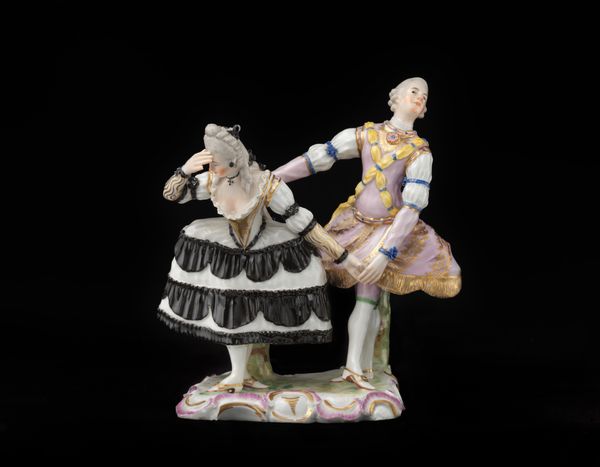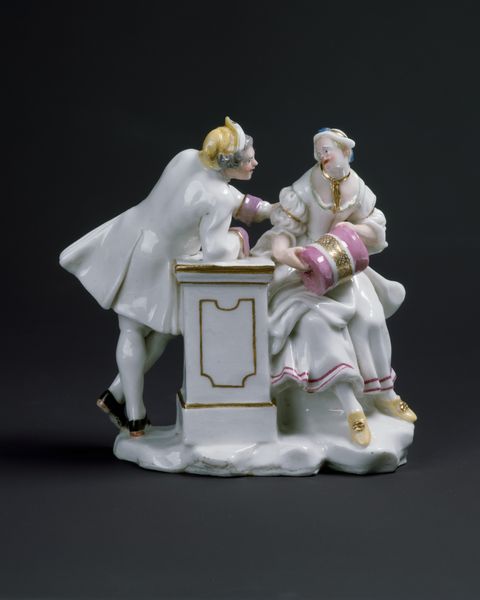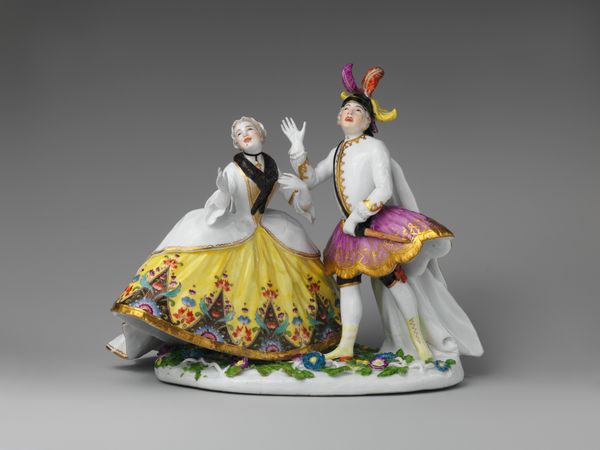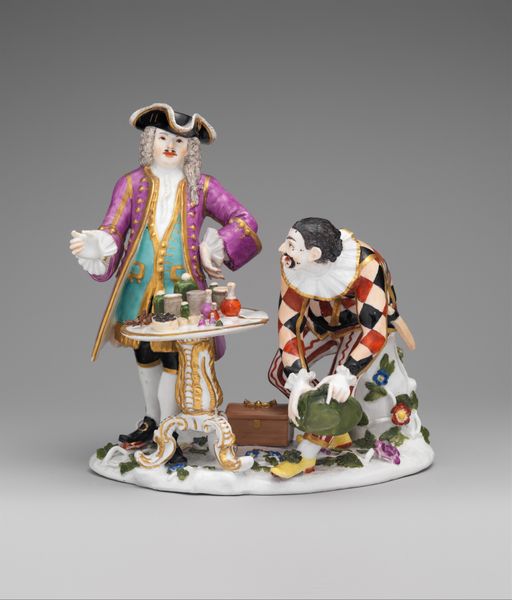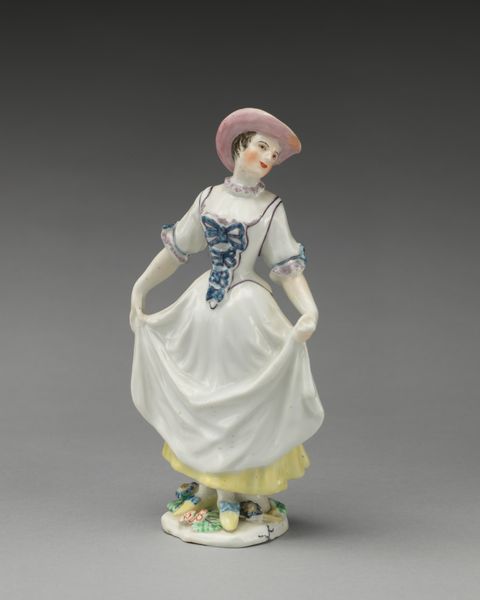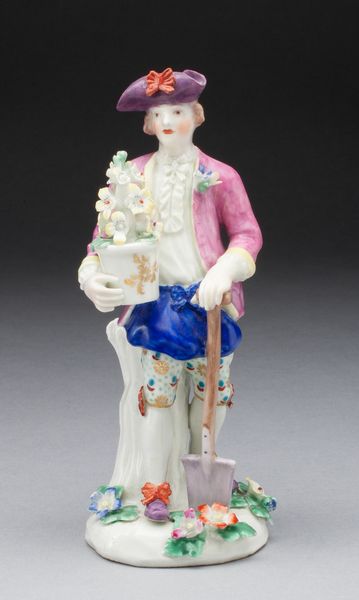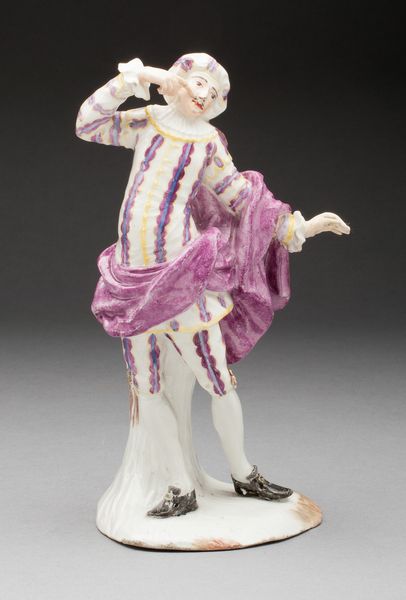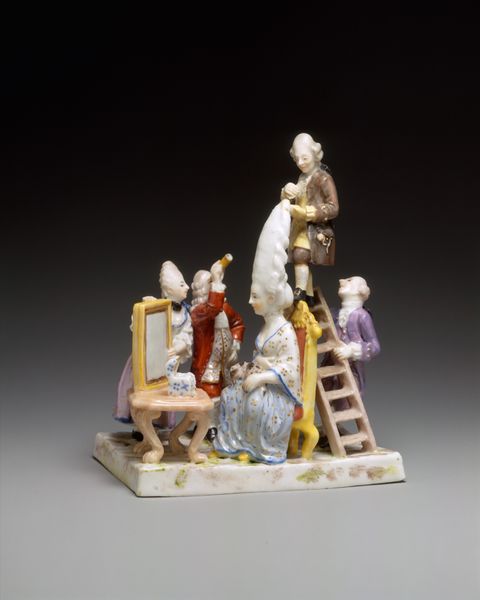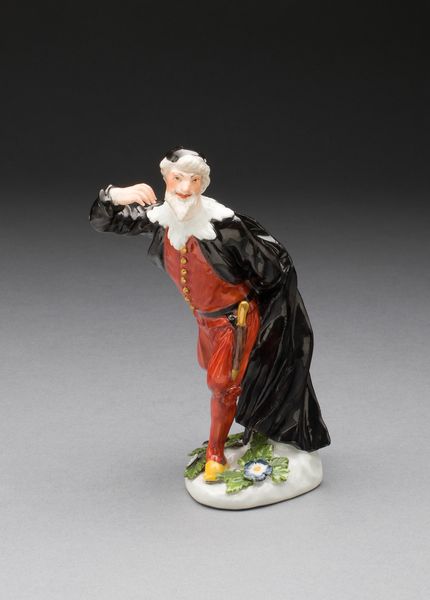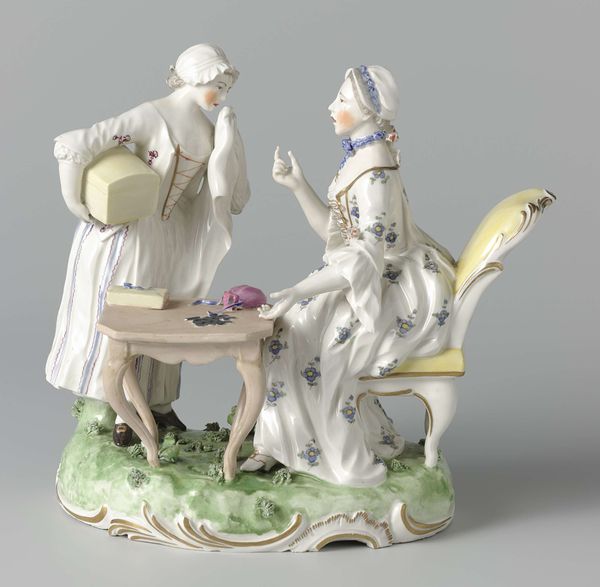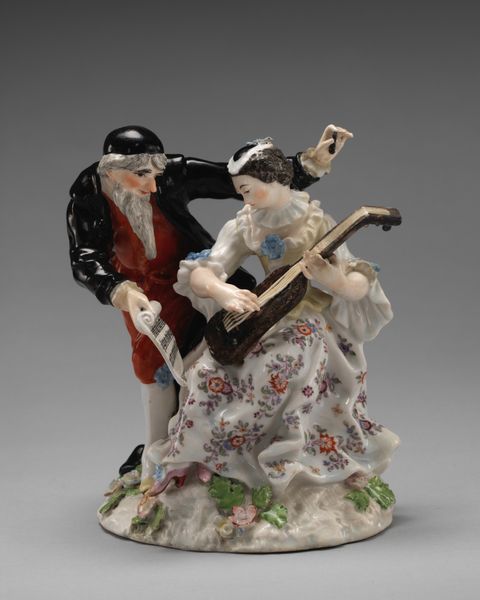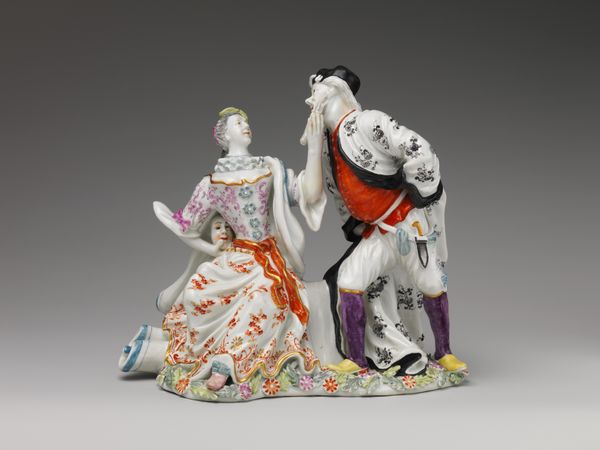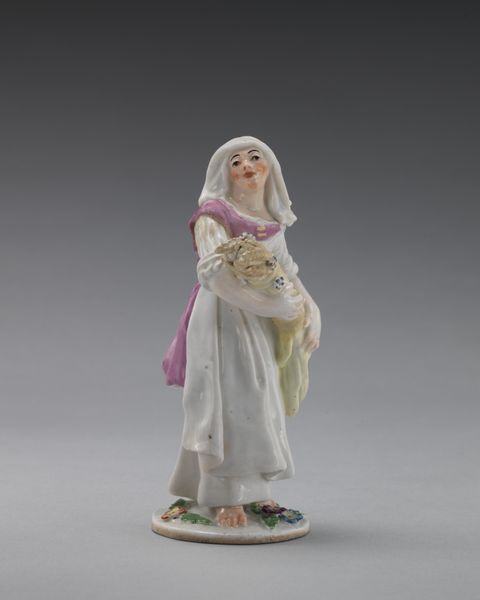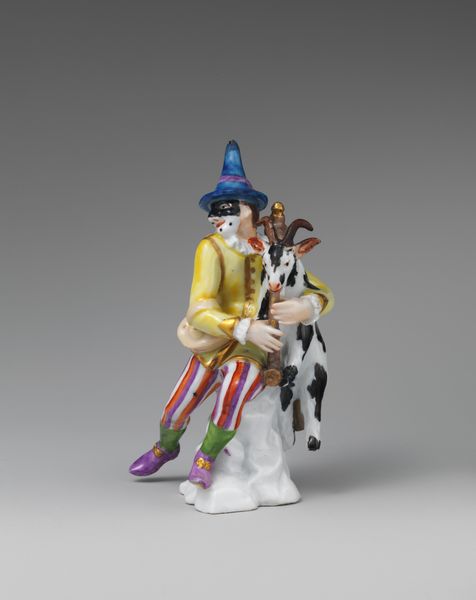
ceramic, porcelain, sculpture
#
portrait
#
ceramic
#
porcelain
#
figuration
#
sculpture
#
men
#
decorative-art
#
rococo
Dimensions: Overall (confirmed): H. 8 7/16 x W. 6 7/8 x D. 4 1/8 in. (21.4 x 17.5 x 10.5 cm)
Copyright: Public Domain
The Cravat, made of porcelain by the Capodimonte Porcelain Manufactory in the mid-18th century, encapsulates the performative aspects of identity and social class during the period of the Rococo. Through the lens of gender and class, consider the intricacies of the figures’ social roles. The woman, seemingly of higher status due to her elaborate attire, holds herself with a composed elegance, while the man busies himself with the performative act of adjusting his cravat, a symbol of status and self-presentation. Both are adorned in finery, yet the scene raises questions about the constructed nature of social roles. There's a tension here between the artificiality of social conventions and the intimate, human desire for recognition and acceptance. What emotions do you think these characters are conveying and concealing? In what ways does the porcelain medium itself, with its delicate beauty, echo the fragility of social appearances?
Comments
No comments
Be the first to comment and join the conversation on the ultimate creative platform.
